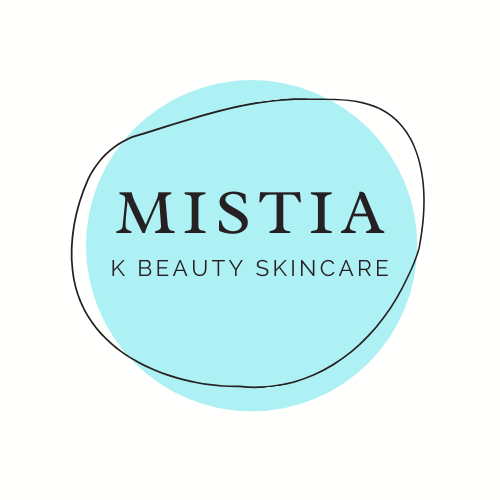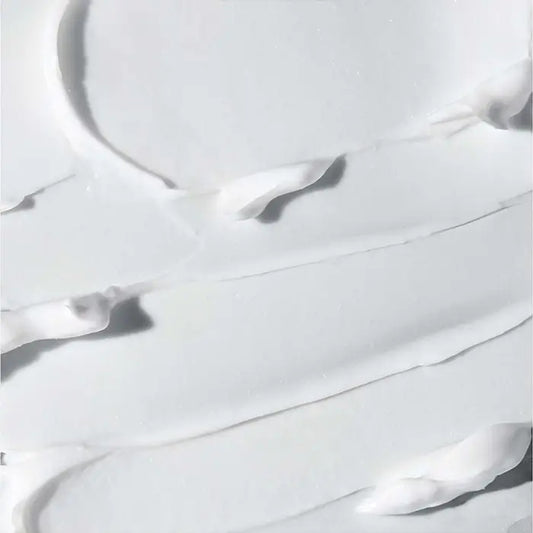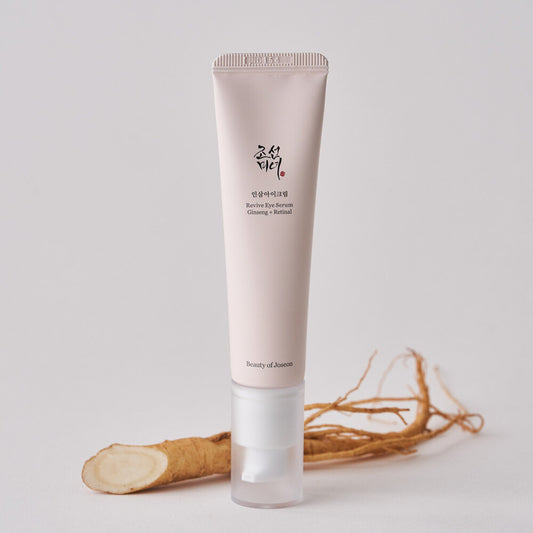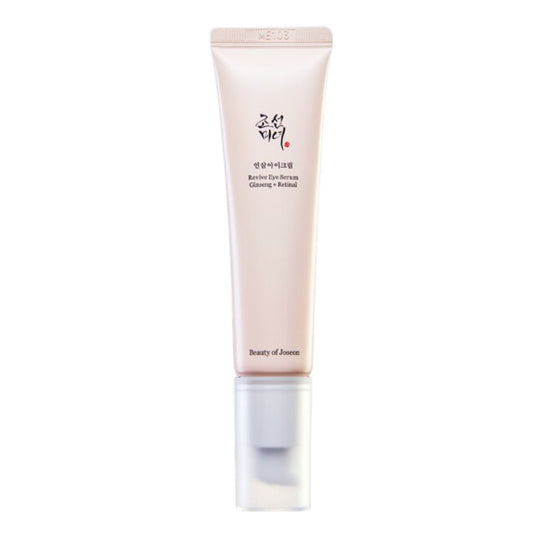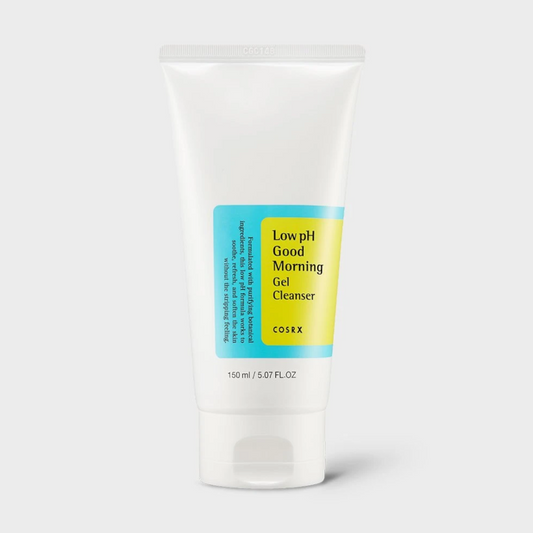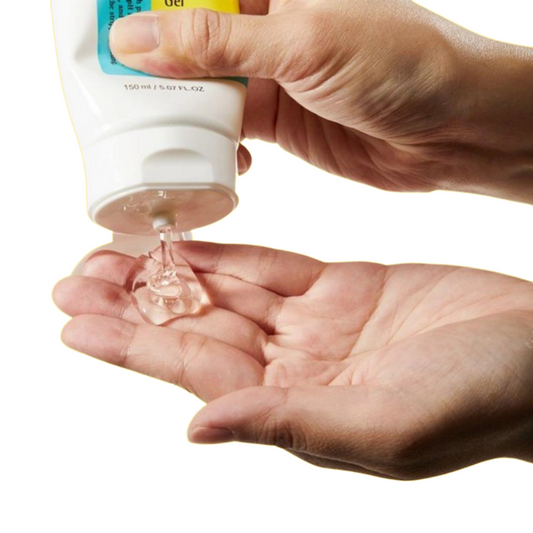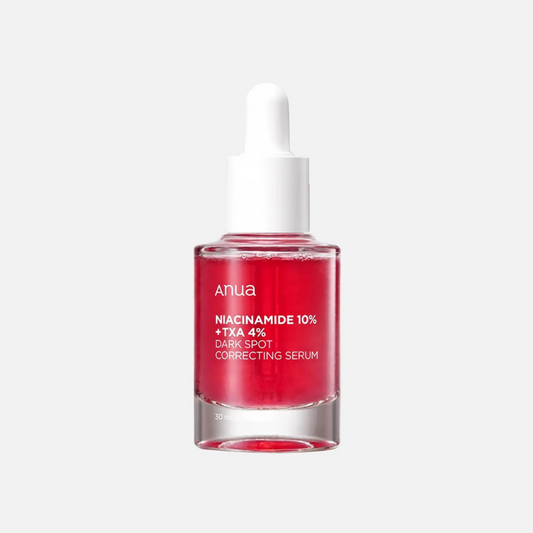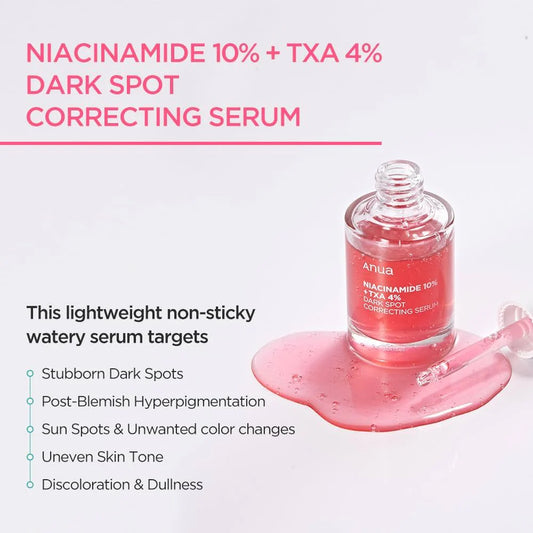
What is Bakuchiol? What are the Skin Benefits?
Share
Bakuchiol, an ingredient extracted from plants, is increasingly recognized in skincare. It delivers many of the desired effects typically attributed to retinol, while often being better tolerated by the skin. This has led to its widespread adoption, notably within the K-Beauty market.
What is Bakuchiol?
Bakuchiol (pronounced "bah-koo-chee-ol") is a natural compound extracted primarily from the seeds and leaves of the Babchi plant (Psoralea corylifolia), a purple-flowered herb traditionally used in Ayurvedic and Chinese medicine for its healing properties.1
Despite being chemically different from vitamin A derivatives like retinol, Bakuchiol has been shown to work through similar pathways in the skin. It stimulates collagen production, promotes cell turnover, and possesses antioxidant and anti-inflammatory properties. This makes it a fantastic multi-tasker for addressing signs of aging, uneven skin tone, and even acne.2 3 4
A Rich History: Bakuchiol Through the Ages

Photo: Ask The Scientists
The use of the Babchi plant, from which Bakuchiol is derived, is far from new. For thousands of years, it has been an integral part of traditional medicine systems:5 6
- Traditional Chinese Medicine (TCM): In TCM, the Psoralea corylifolia plant was recognized for its ability to heal, soothe, and nourish the skin. Practitioners used it to treat various skin conditions like eczema, psoriasis, and acne, valuing its anti-inflammatory and antibacterial properties.8
- Indian Ayurveda: In the ancient Indian system of medicine, the Babchi plant was known as a "Rasayana," or rejuvenating substance. Ayurvedic texts document its use in anti-aging treatments and to enhance overall skin vitality, even being applied to conditions like vitiligo.5 7
While the plant itself has a long history, Bakuchiol as an isolated compound was first identified in 1966 by Indian chemists. Its journey into modern commercial skincare began more recently, around 2007, when it was introduced to the market. Its true surge in popularity, however, exploded around 2018-2019, following clinical studies that directly compared its anti-aging efficacy to retinol, with favorable results regarding tolerability.8 9
Why is Bakuchiol Popular in K-Beauty?

Photo: You Wish
Bakuchiol's surge in popularity within K-Beauty is no coincidence. Korean skincare emphasizes gentle yet effective ingredients and often focuses on skin barrier health. Bakuchiol perfectly aligns with this philosophy for several reasons:11
- Retinol-Like Benefits, Less Irritation: K-Beauty consumers often seek powerful anti-aging solutions, but without the redness, peeling, or dryness sometimes associated with retinol, especially for sensitive skin types. Bakuchiol delivers comparable results in improving fine lines, wrinkles, elasticity, and hyperpigmentation with significantly less irritation.12
- Compatibility and Layering: Korean skincare routines often involve multiple steps and layering of products. Bakuchiol is generally stable and plays well with other popular K-Beauty ingredients like hyaluronic acid, ceramides, and centella asiatica, making it easy to integrate into existing routines. Unlike retinol, it's not known to cause photosensitivity, meaning it can be used both day and night (though sunscreen is always essential!).13 14 15
- Natural and Vegan Appeal: With a growing demand for "clean" and plant-based ingredients, Bakuchiol fits perfectly. It's a natural extract, and unlike some retinol formulations, it's inherently vegan, appealing to ethical beauty standards.3
- Innovation and Research: The K-Beauty industry is at the forefront of skincare innovation. As research on Bakuchiol emerged, highlighting its efficacy and gentle profile, Korean brands were quick to adopt and formulate with it, cementing its place in the market.16
Bakuchiol vs. Retinol: A Head-to-Head Comparison
While both Bakuchiol and Retinol are celebrated for their impressive skin-rejuvenating abilities, they achieve these results through distinct mechanisms and come with different user experiences.17
| Feature | Bakuchiol | Retinol |
| Origin | Plant-derived (Babchi plant) | Vitamin A derivative (synthetic or animal-derived) |
| Mechanism of Action | Acts on similar receptors to retinol, stimulating collagen and cell turnover. | Binds to retinoic acid receptors, directly influencing gene expression and cell turnover. |
| Irritation Potential | Low. Generally well-tolerated, minimal redness, peeling, or dryness. | High. Common to experience irritation, redness, dryness, and flaking, especially during initial use or with higher concentrations. |
| Sun Sensitivity | None. Does not increase skin's photosensitivity. | Increases skin's sensitivity to the sun. Best used at night. |
| Compatibility | Highly compatible with most other skincare ingredients. Can even stabilize retinol. | Can be inactivated by or poorly combine with certain ingredients (e.g., strong AHAs/BHAs, Benzoyl Peroxide, some Vitamin C forms). |
| Pregnancy/Breastfeeding | Considered safer. (Always consult a healthcare provider). | Not recommended due to potential risks. |
| Speed of Results | Generally provides results more gradually. | Can show quicker, more dramatic results, especially with potent forms. |
| Research History | Newer ingredient with growing, promising research. | Decades of extensive clinical research, considered the "gold standard." |
| Vegan Status | Always vegan. | Some forms may be animal-derived; check product labeling. |
| "Purging" Period | Typically no initial breakout/purging phase. | Can cause an initial "purging" period (temporary worsening of acne). |
Ultimately, the choice between Bakuchiol and Retinol depends on your skin's unique needs, sensitivity, and lifestyle. If you have sensitive skin, are pregnant/breastfeeding (with doctor's approval), or prefer plant-derived ingredients without sun sensitivity concerns, Bakuchiol is an excellent choice. If your skin tolerates active ingredients well and you're seeking the most potent, extensively researched option for severe concerns, retinol might be preferred. It's also possible to use both in conjunction, with Bakuchiol helping to mitigate retinol's irritating effects.15 12
Pros and Cons of Bakuchiol
Like any skincare ingredient, Bakuchiol comes with its own set of advantages and considerations:
Pros
- Gentle on Skin: Significantly less likely to cause irritation, redness, dryness, or peeling compared to retinol, making it ideal for sensitive skin types.15
- Anti-Aging Benefits: Effectively helps reduce the appearance of fine lines, wrinkles, and improves skin elasticity and firmness by boosting collagen production.12
- Evens Skin Tone: Can help diminish hyperpigmentation and brighten overall complexion.15
- Antioxidant Properties: Protects the skin from environmental damage and free radicals.5
- Anti-inflammatory: Helps calm and soothe irritated skin, making it suitable for those with conditions like acne, rosacea, or eczema.18
- Can be Used Day & Night: Unlike retinol, Bakuchiol does not cause photosensitivity, allowing for versatile use. (However, always pair with SPF during the day!)19
- Pregnancy & Breastfeeding Friendly (Consult Doctor): While extensive research is still ongoing, preliminary indications suggest it may be a safer option during pregnancy and breastfeeding compared to retinoids. Always consult with a healthcare professional before use.20
- Vegan-Friendly: Derived purely from plants.21
Cons:
- Less Research than Retinol: While promising, Bakuchiol doesn't have the decades of extensive clinical research that retinol boasts.
- Potency Variation: The concentration and efficacy can vary between products and formulations. Look for products with at least 0.5% Bakuchiol for noticeable effects.
- Slower Results (Potentially): Some users might find that results appear more gradually compared to strong retinoids.
- Not a Direct Retinol Replacement: While it mimics many benefits, it's not chemically identical to retinol, and some dermatologists still consider prescription retinoids the "gold standard" for certain conditions.22
Popular K-Beauty Products Featuring Bakuchiol
SKIN1004 Madagascar Centella Probio-Cica Bakuchiol Eye Cream
Leverages Bakuchiol's anti-aging properties alongside soothing Centella Asiatica for wrinkle reduction and barrier strengthening.
EQQUALBERRY Bakuchiol Plumping Serum
A serum that aims to support collagen production and strengthen the skin barrier with Bakuchiol, ceramides, and peptides.
KSECRET SEOUL 1988 Eye Cream : Retinal Liposome 4% + Fermented Bean
An eye cream with powerful anti-aging effects of retinal with the nourishing and protective benefits of fermented bean extract, along with other complementary ingredients like bakuchiol, Vitamin C, peptides, niacinamide, and hyaluronic acid, to address wrinkles, fine lines, dark circles, and improve overall skin texture and firmness around the eyes.
Bakuchiol stands out as an exciting and promising ingredient for those seeking effective anti-aging and skin-improving benefits, particularly if traditional retinoids prove too harsh. Its alignment with K-Beauty's emphasis on gentle efficacy has cemented its place as a beloved staple in many skincare routines.21
Resources
- Psoralea corylifolia L: Ethnobotanical, biological, and chemical aspects: A review, https://pmc.ncbi.nlm.nih.gov/articles/PMC7167735/
- Multidirectional activity of bakuchiol against cellular mechanisms of facial ageing ‐ Experimental evidence for a holistic treatment approach, https://pmc.ncbi.nlm.nih.gov/articles/PMC9328396/
- What is Bakuchiol? Uses & Benefits for Skin, https://www.nivea.co.uk/advice/skin/bakuchiol
- Bakuchiol: the Best Naturally-Derived Alternative to Retinol, https://www.keyssoulcare.com/body/the-soothing-secrets-of-bakuchiol.html
- Bakuchiol, a natural constituent and its pharmacological benefits, https://pmc.ncbi.nlm.nih.gov/articles/PMC10683784/
- Bakuchiol: A trending ingredient with a classic background, https://blog.covalo.com/personal-care/bakuchiol-a-trending-ingredient-with-a-classic-background
- Bakuchi: Benefits, Ancient Remedies, and Consumption, https://blog.theayurvedaexperience.com/bakuchi-benefits-ancient-remedies-and-consumption/
- The Use of Bakuchiol in Dermatology: A Review of In Vitro and In Vivo Evidence, https://pubmed.ncbi.nlm.nih.gov/35674758/
- Bakuchiol, https://en.wikipedia.org/wiki/Bakuchiol
- How Bakuchiol Benefits Your Skin: The Natural Retinol Alternative, https://blog.themomsco.com/bakuchiol-benefits-for-skin/
- Is Korean Skincare Really Better?, https://banilausa.com/blogs/skincare-guides/is-korean-skincare-really-better
- What Is Bakuchiol and How Does It Stack Up To Retinol?, https://www.isdin.com/us/blog/isdinnovation/what-is-bakuchiol-retinol-alternative/
- Korean Skin Care Routines: What You Need To Know, https://health.clevelandclinic.org/korean-skincare-routine
- Bakuchiol Before or After Moisturizer? Yes, the Order Matters, https://seoulceuticals.com/blogs/news/bakuchiol-before-or-after-moisturizer-yes-the-order-matters
- Should You Be Using Bakuchiol in Your Skin Care Routine?, https://health.clevelandclinic.org/bakuchiol
- The Evolution of K-Beauty: A Fusion of Tradition, Innovation, and Design, https://www.red-dot.org/magazine/k-beauty
- This Surprising Product Combo Might Be the Secret to Brighter, Smoother Skin, https://coveteur.com/2020/10/20/retinol-bakuchiol-combination-benefits/
- Retinol is an Anti-Aging Favorite — But Will It Trigger Your Eczema?, https://nationaleczema.org/blog/blog-retinol-and-eczema/
- Skin Care Ingredient Focus: Bakuchiol, https://www.westlakedermatology.com/blog/skin-care-ingredient-focus-bakuchiol/
- 8 Retinol Alternatives You Can Use While Pregnant or Breastfeeding, https://www.byrdie.com/pregnancy-safe-retinol-alternatives-11727962
- Everything You Need to Know About Bakuchiol: Retinol's Natural Alternative, https://www.medik8.com/pages/guide-to-bakuchiol-natural-retinol-alternative
- Retinol vs Bakuchiol: What No One Tells You, https://www.bareluxeskincare.com/blogs/elevated-simplicity/bakuchiol-vs-retinol
